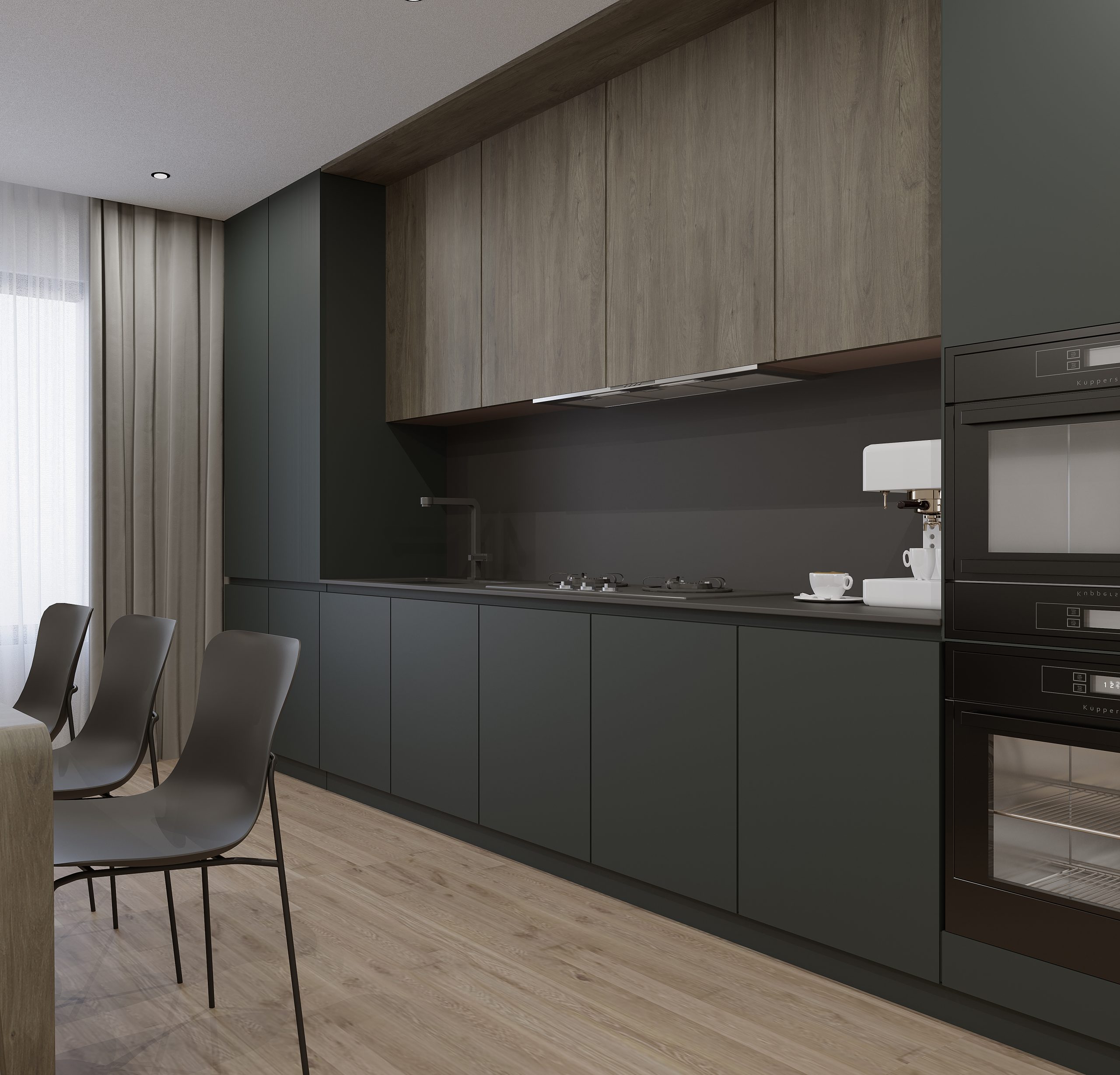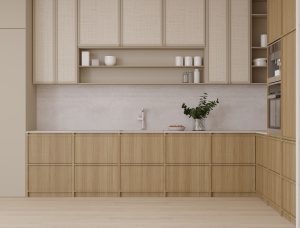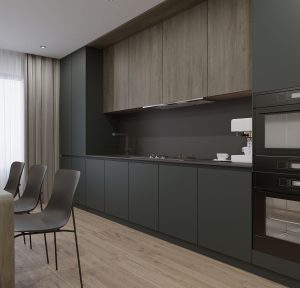Compact Laminate vs Quartz: Which Kitchen Countertop is the Best?

Renovating your kitchen or planning to update your countertop? The choice of materials can significantly impact the functionality and aesthetics of your kitchen. Two popular options are Compact laminate and quartz.
Both have their unique advantages and drawbacks.
In this article, we’ll dive into a detailed comparison to help you decide which material is the best for your kitchen countertop.
Understanding Compact Laminate
What is Compact Laminate?
Compact laminate (I,e Jennings Compact laminate range), is a high-density, non-porous composite material. Produced entirely in Europe, this innovative panel solution has undergone extensive research and development.
Compact laminate is made using multiple layers of paper soaked in resins, fused together under high pressure and temperature. The result is a robust and sleek surface, only 8mm thick, but incredibly strong.
Key Benefits of Compact Laminate:
- Scratch Resistant: Compact laminate is highly resistant to scratches, making it ideal for busy kitchens where utensils and other items might scratch the surface.
- Waterproof: The smooth surface ensures it is resistant to moisture, making it perfect for areas prone to spills and splashes.
- Steam Proof: Compact laminate can withstand exposure to steam without warping or damage.
- Fire Resistant: It is designed to be fire-resistant, adding an extra layer of safety to your kitchen.
- Easy to Clean, Low Maintenance: It is easy to clean with just regular wiping, requiring minimal maintenance.
- Easy to Install: Its lightweight and 8mm thickness make it easier and quicker to install compared to thicker surfaces.
- Sleek Appearance: Despite its robustness, compact laminate comes in various designs that can fit any kitchen design.
- Resistant to Impact, Highly Durable: Its composition makes it highly durable and resistant to impact, ensuring a long-lasting surface.
Compact Laminates in Kitchen
(Featured compact laminate: CPB1232GL)
(Featured compact laminate: C012CT)
(Featured compact laminate: CPWW1218HG)
(Featured compact laminate: C010CT)
Related article: Compact Laminates: The Affordable Option for Tabletops
Understanding Quartz
What is Quartz?
Quartz countertops are engineered stone products made from natural quartz combined with resins and pigments.
This results in a highly durable and aesthetically pleasing surface. Quartz is known for its glossy finish and is available in a wide range of colors and patterns, mimicking the look of natural stone.
Key Benefits of Quartz:
- Durability: Quartz is one of the hardest minerals, making these countertops exceptionally durable and resistant to scratches and stains.
- Non-Porous Surface: Quartz is non-porous, which makes it resistant to moisture and bacteria, ideal for maintaining a hygienic kitchen.
- Aesthetic Appeal: Quartz offers a luxurious look, with a variety of patterns and colors that can mimic marble, granite, and other natural stones.
- Low Maintenance: Quartz countertops are easy to maintain, requiring only regular cleaning with mild soap and water.
- Heat Resistance: Quartz has good heat resistance, though trivets are recommended for hot pots and pans to avoid damage.
Comparing Compact Laminate and Quartz
- Durability:
- Both materials are highly durable, but quartz edges out with slightly higher resistance to heat and daily wear. Compact laminate is incredibly tough and is fire-resistant, but may not withstand heat as well as quartz. However, its resistance to impact and scratches is comparable.
- Maintenance:
- Both compact laminate and quartz require minimal maintenance. They are easy to clean with just soap and water. Their non-porous surfaces mean they don’t harbor bacteria or stains, making them both hygienic choices for kitchens.
- Aesthetic Options:
- Quartz typically offers a more luxurious look, with designs that can mimic high-end natural stones like marble and granite. Compact laminate, on the other hand, provides a wide range of modern, sleek designs that can fit seamlessly into contemporary kitchens. Its thinner profile also offers a unique, minimalist aesthetic.
- Cost:
- Compact laminate is much more cost-effective compared to quartz. While quartz offers a high-end look and durability, compact laminate provides an excellent alternative that balances cost and performance.
- Installation:
- Both materials require professional installation. Quartz, being heavier, may need more support and precise handling during installation. Compact laminate, due to its lighter weight and thickness, can be easier and quicker to install.
- Environmental Impact:
- Compact laminate is made using paper and resins, which can be more environmentally friendly compared to the resin and mineral mixture used in quartz. The manufacturing processes for both materials aim to minimize waste and environmental impact.
Compact Laminate or Quartz Countertop?
Choose Compact Laminate If:
- You are looking for a budget-friendly option without compromising on durability and style.
- You prefer a sleek, modern look with a thin profile.
- You need a surface that is easy to install and maintain.
- You want a material that offers a variety of colors and finishes to match your kitchen’s theme.
Choose Quartz If:
- You have more budget to spare.
- You desire a luxurious, high-end look for your kitchen.
- You prefer the aesthetics of natural stone but want a more durable and low-maintenance option.
Conclusion
Both compact laminate and quartz offer excellent options for kitchen countertops, each with its unique advantages.
Your choice will ultimately depend on your budget, aesthetic preferences, and specific needs. The Jennings Compact laminate range provides a cost-effective, durable, and stylish solution, perfect for modern kitchens. Quartz, with its luxurious appearance and exceptional durability, offers a premium choice for those looking to invest in a high-end kitchen surface.
Whether you choose compact laminate or quartz, both materials will enhance the functionality and beauty of your kitchen, making it a space you will love for years to come.




